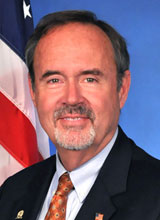Pinellas County Commissioners yesterday unanimously approved a ban on hydraulic fracturing (a.k.a. “fracking”). However, the ordinance actually allows fracking because faulty language was used in the ordinance. The Tampa Bay Guardian discovered the fatal flaw by reading the ordinance.
“What is actually banned” is obviously the key part of any ban. The problem with the ordinance that “banned fracking” in Pinellas County is that it bans the use of certain “well stimulation” techniques, including hydraulic fracturing, specifically and only during “oil or gas exploration or production”.
However, “well stimulation” is not used during either “exploration” or “production” phases of an oil or gas well. Rather, hydraulic fracturing is primarily executed during the so-called “well completion” phase. Section 58-489 of the ordinance, “Well Stimulation Prohibited”, is where the mistake was made.
The blunder is literally a failure to understand “Well Completion 101”. Well owners in Pinellas County who frack their hydrocarbon wells will be able to truthfully say they are fully complying with the anti-fracking ordinance.

The fracking ban was virtually meaningless from the outset, because no economically recoverable oil and gas exists under Pinellas County. However, this isn’t the first time the Pinellas County Commission drops the ball in their haste to issue meaningless statements on oil and gas drilling issues.
In 2009, the county’s Convention and Visitor’s Bureau (CVB) organized a rally against oil and gas drilling in federal and state waters. However, a citizen pointed out that the county commission resolution the formed the alleged legal authority for the advocacy only covered drilling for oil (but not gas) in federal (but not state) waters.
The outcome of the 2009 debacle was that the county commission, without any discussion, passed an amended ordinance that covered the citizen-identified deficiencies. The same is likely to occur in this case as well, because meaningless ordinances can be great re-election vehicles.
 “I don’t know the answer to that”, said Commissioner Karen Seel (pictured right) when asked if critics of the ordinance had been consulted, “but I do know that someone from the industry reached out to the commissioners with information.”
“I don’t know the answer to that”, said Commissioner Karen Seel (pictured right) when asked if critics of the ordinance had been consulted, “but I do know that someone from the industry reached out to the commissioners with information.”
“If the ban in fact is not properly written, we want to rectify it”, said Seel. “My understanding is that we can’t do any fracking anyway in Pinellas County, but I thought the ordinance was an important gesture to support protecting our aquifers in Florida.”
Commissioners Karen Seel, John Morroni, and Ken Welch were all on the commission in 2009, yet failed to catch very similar mistake in 2016. Seel said she recalled the faulty 2009 drilling resolution.
 Commissioner David Eggers (pictured right) said he would defer comment until he had the run issue by the appropriate county staff. “But thanks for the heads up”, said Eggers “and I will get back to you.”
Commissioner David Eggers (pictured right) said he would defer comment until he had the run issue by the appropriate county staff. “But thanks for the heads up”, said Eggers “and I will get back to you.”
Eggers was elected in 2014, and faces reelection in 2018. Seel faces reelection this fall, but has not drawn an opponent and is not likely to, either.
One Guardian reporter has professional experience from the oil and gas industry. However, finding the flaw in the ordinance required only that a person know how to search in Google, and a simple understanding that the core of any prohibition lies in what is being prohibited.
As always, the Guardian reports and the readers decide.
Below is a link to an article about the aforementioned CVB county agency, which (as mentioned above) used tax dollars to organize a political rally in 2009.


